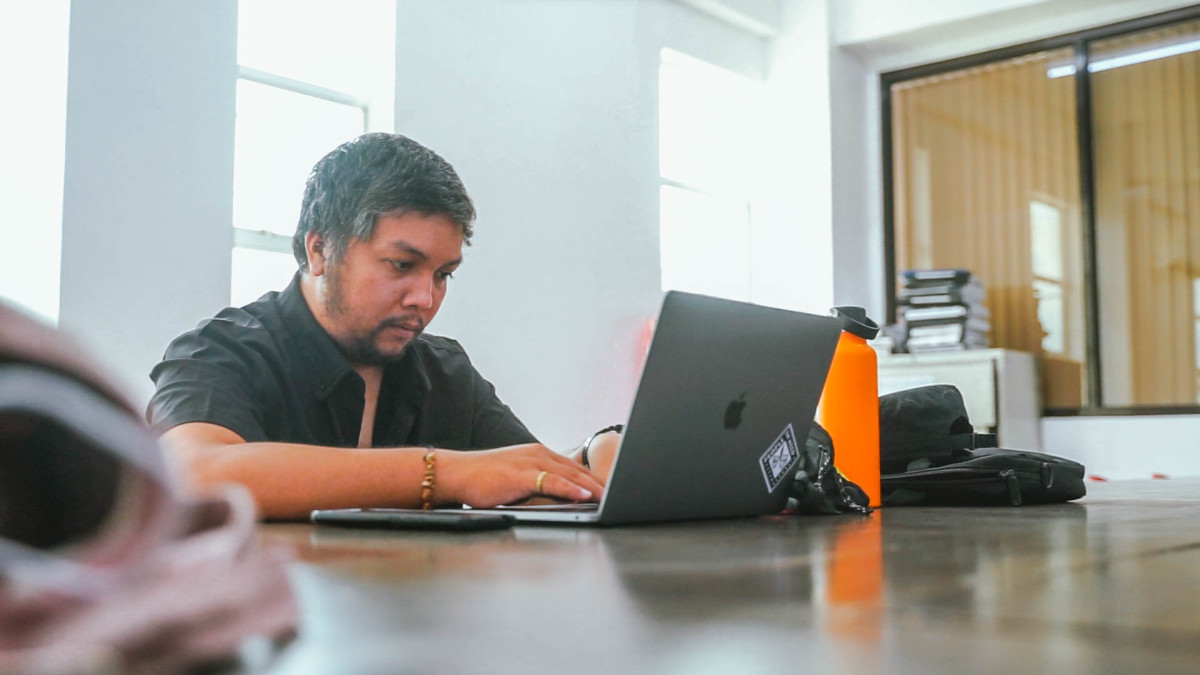Resilience Rising: A Path from Surviving to Thriving
Inilathala: Ago 18, 2023 Oras ng pagbabasa: 5 minuto Sdílet: Sdílet článekThe Philippines faces 18-20 typhoons annually, and these cause significant economic damage. Over the past decade, typhoons have resulted in €7.45 billion in damages and claimed 12,000 lives. Among the most devastating was Super Typhoon Yolanda in 2013. The devastation caused by Yolanda was the catalyst for our decision to commence working in the Philippines. Presently, our projects focus on disaster preparedness in vulnerable areas of Mindanao. And in light of World Humanitarian Day, we would like to shed light on one of our colleagues who make our work successful: Mark Alfred Rosete.

Born in Eastern Visayas, facing the Pacific Ocean and a high cyclone hazard classification, Mark is no stranger to typhoons. However, the impact of Typhoon Haiyan—locally named Yolanda— was a catastrophe even he couldn't have imagined. For Mark, a commitment to lifelong humanitarian work grew from his own response to Yolanda.
In his early 20s, Mark's journey into humanitarian work began as a lighthearted adventure. It started as an opportunity to share experiences with friends and explore new places. However, this seemingly casual choice became a profound experience. "My friends drew me in, and I embraced it. The more involved I became, the deeper my connection with the community grew, and I realised the profound fulfilment and joy it brought," Mark reflected.
After graduating, Mark briefly worked in the media sector before being invited to become a mission volunteer for a local NGO. For about three years, he was deeply involved in the community, living with beneficiary families, assisting in building houses and facilitating connections with funding agencies. He also championed volunteerism among the youth, recognising their potential as the future torchbearers of humanitarian efforts.
Guided by a mentor's wisdom, Mark grasped the essence of humanitarian work; it transcends mere giving. It's about immersing oneself in the lives of those being helped and providing genuine necessities. Mark took this wisdom to heart, living alongside beneficiaries and empathising with their daily struggles. This shift in perspective deepened his gratitude for his life's blessings.
However, Mark faced challenges that briefly led him away from humanitarian work. "People around me, especially my family, didn't understand my work. Being constantly away from home with a meagre salary, it seemed that I couldn't fulfil their desires for me," Mark recalled.
Mark's story took a dramatic turn when he found himself facing the fury of Typhoon Yolanda. At 9:00 am on November 8, 2013, a tsunami-like storm surge ravaged Eastern Samar, claiming 6,300 lives and injuring 28,000. Tacloban, Mark's location at the time, bore the brunt of this violent 7m-high sea tide.
Taking shelter in a two-story building, Mark felt like it was his last day. Clinging to a piece of wood for three agonising hours, he witnessed people disappearing before him as powerful waves engulfed them. When the storm subsided, Mark emerged alive, with a renewed sense of purpose etched into his heart.
"I was given a second life. Walking the streets amidst devastation, I thought about the communities we had helped, the people I knew, and my family. I pondered why I had been given a second chance. It was then that I decided to return to development work. In an instant, my purpose became clear: providing help to the community," Mark recalled.
After three months of recovery, Mark was asked to join recovery and rehabilitation projects. Later, he had the opportunity to work for an international NGO.
This path led Mark to immerse himself in disaster risk reduction (DRR), which resonated deeply with his experience. He believed disseminating DRR knowledge could mitigate the future impacts of catastrophes like Yolanda, thus saving lives.
This journey brought him to our People in Need (PIN) Philippines team. He now serves as the Program Coordinator of the Early Warning System Project. This innovative system delivers timely flood information to authorities, enabling swift and reliable warnings to be conveyed to vulnerable communities..
Additionally, Mark oversees partnerships for localised humanitarian leadership and emergency response efforts. By empowering local responders, he strengthens their capacities and partnerships for future interventions, amplifying the voices of communities. His work also extends to managing the Mindanao Assessment of Access to Landslide Early Warning Systems, fortifying readiness and technologies through our Global Invest Fund.
"I'm always eager to explore every facet of DRR because I genuinely enjoy it. It involves community engagement and technology, combining my organising and teaching skills. My experience during Yolanda has given me the strength to relate to people and inspire their belief in what we advocate for them. I aim to spread disaster preparedness knowledge to as many as I can, especially the youth, so that knowledge continues to be passed on. I am determined that this is the path I want to take," Mark declared.
With over a decade of service in humanitarian work, Mark firmly believes that #nomatterwhat, helping others brings the ultimate joy to life. His experiences made him realise that we shouldn't wait for catastrophes to motivate us to help; instead, we should dedicate parts of our daily lives to checking on others, sharing knowledge, and providing help.
"I believe each of us has a purpose. Some may have abandoned or neglected it due to societal expectations that dictate what we should be. However, the essence of our existence is to open ourselves to others, to be our brother's keeper, and to ask, 'What can I do to help others before it's too late?'" Mark concludes.
